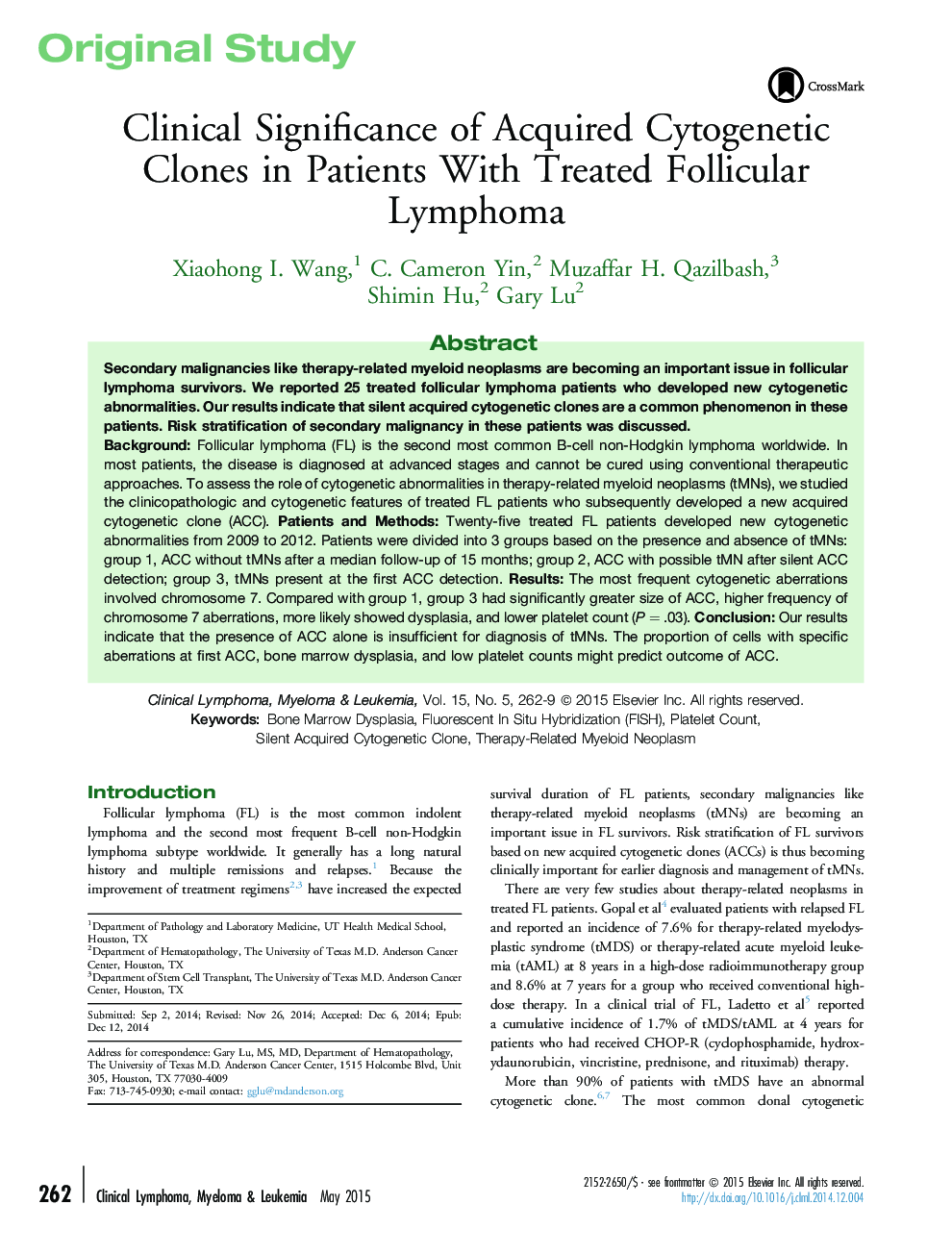| Article ID | Journal | Published Year | Pages | File Type |
|---|---|---|---|---|
| 2754383 | Clinical Lymphoma Myeloma and Leukemia | 2015 | 8 Pages |
BackgroundFollicular lymphoma (FL) is the second most common B-cell non-Hodgkin lymphoma worldwide. In most patients, the disease is diagnosed at advanced stages and cannot be cured using conventional therapeutic approaches. To assess the role of cytogenetic abnormalities in therapy-related myeloid neoplasms (tMNs), we studied the clinicopathologic and cytogenetic features of treated FL patients who subsequently developed a new acquired cytogenetic clone (ACC).Patients and MethodsTwenty-five treated FL patients developed new cytogenetic abnormalities from 2009 to 2012. Patients were divided into 3 groups based on the presence and absence of tMNs: group 1, ACC without tMNs after a median follow-up of 15 months; group 2, ACC with possible tMN after silent ACC detection; group 3, tMNs present at the first ACC detection.ResultsThe most frequent cytogenetic aberrations involved chromosome 7. Compared with group 1, group 3 had significantly greater size of ACC, higher frequency of chromosome 7 aberrations, more likely showed dysplasia, and lower platelet count (P = .03).ConclusionOur results indicate that the presence of ACC alone is insufficient for diagnosis of tMNs. The proportion of cells with specific aberrations at first ACC, bone marrow dysplasia, and low platelet counts might predict outcome of ACC.
